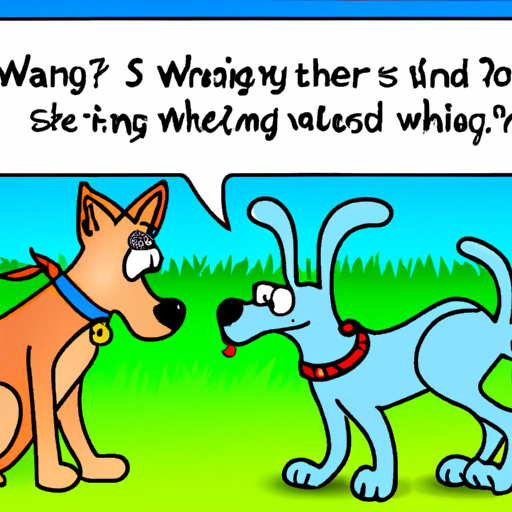It is quite common for dog owners to witness behaviors in their pets that leave them feeling puzzled, and even slightly uncomfortable. One such behavior is a dog licking the genitals of another dog, which often raises eyebrows and questions. If you’ve found yourself asking “Why does my dog lick my other dog’s penis?” then you’re in the right place. Let’s delve into this topic in depth, to understand the reasons behind this behavior and what, if anything, should be done about it.
H2: Understanding Canine Behavior
Firstly, it’s important to understand that dogs are not humans. They possess different instincts, behaviors, and communication methods. Dogs use their mouths and tongues as tools for exploration, and as such, licking is a natural part of their behavior.
- Social Behavior: Dogs often lick each other as a sign of submission or respect, which is a part of their pack mentality. This is particularly common among puppies who lick the faces and mouths of older, more dominant dogs.
- Exploration: Dogs explore their environment through their sense of taste and smell. This includes licking objects, humans, and even other dogs.
- Grooming: Dogs often groom each other, a behavior they learn from their mothers. This includes licking each other’s genital areas.
- Medical Reasons: If a dog is persistently licking another dog’s genitals, it may indicate a medical issue such as an infection, injury, or irritation.
| Social Behavior | Exploration | Grooming | Medical Reasons |
|---|---|---|---|
| Submission or respect | Sense of taste and smell | Learned from their mothers | Possible infection, injury, or irritation |
H2: When to Be Concerned
While this behavior is generally normal, there are situations where it could indicate a problem. Be aware of the following scenarios:
- Excessive licking: If your dog is obsessively licking the genitals of another dog, it might indicate a problem. This could be a sign of a compulsive disorder.
- Aggression: If the licking behavior is met with aggression from the other dog, it’s best to intervene and distract the dogs.
- Health issues: If the dog being licked is showing signs of discomfort, has a swollen or red penis, or is excessively licking his own genitals, it could indicate a health issue.
H2: What to Do
If you notice any of the above signs, it’s time to take action. Here are some steps you can take:
- Consult a Veterinarian: If you suspect a health issue, consult a vet immediately. They can diagnose and treat any underlying medical conditions.
- Training: If the behavior is excessive or causing conflict, consider enlisting the help of a professional dog trainer. They can teach you techniques to manage and redirect the behavior.
- Distraction: Distract the dog with toys, treats, or a change of environment when they start to engage in the behavior.
H2: The Role of Neutering
Neutering, the process of removing a male dog’s testicles, can sometimes alter behaviors related to sex hormones, such as mounting and aggression. However, it does not necessarily stop behaviors like genital licking, which may be related more to social dynamics or health issues than to sexual motivation.
H2: Frequently Asked Questions (FAQs)
1. Is it normal for my dog to lick my other dog’s penis?
Yes. Dogs often lick each other’s genitals as part of their social behavior or grooming habits.
2. When should I be concerned about this behavior?
If the licking is excessive, causing aggression, or if the dog being licked shows signs of discomfort or illness, it’s time to consult a vet or a professional dog trainer.
3. Can neutering stop this behavior?
Neutering can help reduce behaviors influenced by sex hormones, but it does not necessarily stop genital licking, which can be influenced by a variety of factors.
In conclusion, while this behavior might seem strange to us humans, it’s generally a normal part of canine behavior. However, when it becomes excessive or appears to cause discomfort, it’s crucial to consult a professional to ensure the health and wellbeing of your furry friends. Remember, understanding and respecting their behaviors is a key part of being a good caregiver.



